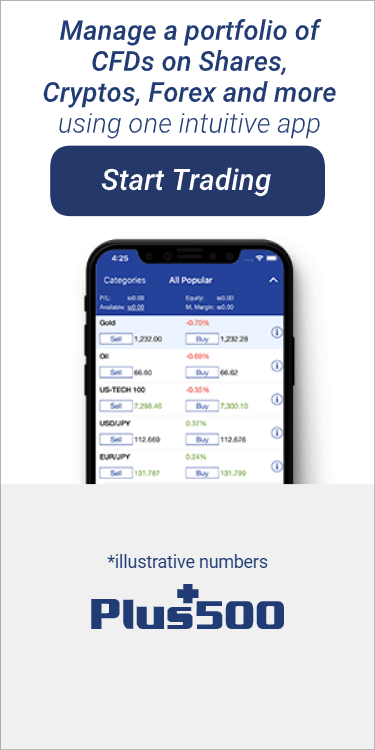Plus500 Review: A User-friendly Trading Platform for Active Traders
If you're looking for a straightforward way to trade CFDs on stocks, crypto, forex, and more,
you've
probably
come across Plus500. It's been around for over 15 years and is widely used by traders who want a
clean
interface, fast execution, and access to a wide range of markets — all in one place.
But is it the right platform for you?
Let’s break down what Plus500 is, how it works, and what kind of trader might benefit most from
using it.

What is Plus500?
Plus500 is a global CFD (Contract for Difference) trading platform that allows you to speculate
on
the price
movements of assets without owning them directly. You can trade stocks, cryptocurrencies,
indices,
commodities, forex, ETFs, and options — with leverage and tight spreads.
It’s available via web platform, desktop app, and mobile app — so you can trade from pretty much
anywhere.
Why Traders Use Plus500?
Here’s what stands out after using the platform myself and researching how others experience it:
Regulated and Transparent.
Plus500 is a regulated broker in multiple jurisdictions, including Plus500EE AS authorised and
regulated by
the Estonian Financial Supervision and Resolution Authority (Licence No. 4.1-1/18) and others.
Plus500 ltd. is
listed on the London Stock Exchange (LSE) which adds credibility.
Intuitive Interface.
The platform is minimalist and user-friendly, with no unnecessary clutter. It’s ideal for
traders
who want
a focused, no-frills trading experience.
Wide Range of CFD Instruments.
You can trade 2,800+ instruments across major global markets — including forex pairs, stocks,
cryptocurrencies
like Bitcoin and Ethereum, ETFs, indices, and commodities like gold and oil.
Tight Spreads, No Commissions.
Plus500 doesn’t charge commission — instead, they make money through the spread. Spreads are
generally
competitive, especially on major forex pairs. There are also no deposit or withdrawal fees.
There
are however
a couple of other fees which you may or may not encounter. More about this can be read on their
official page about
fees
and
charges.
Risk Management Tools.
Set stop loss, take profit, trailing stop, and even a guaranteed stop to better manage your
risk.
Not every
platform offers that level of control.
Key Points
- Experienced traders looking for a clean, fast platform.
- Those who prefer CFD trading over buying real assets.
- Traders who value mobile accessibility and fast order execution.
- People looking to trade a wide range of markets from one account.
- Tight spreads on selected assests.
- Leverage up to 1:30 for retail clients (subject to region & regulation).
Plus500 Risk Disclaimer
79% of retail investor accounts lose money when trading CFDs with this provider. You should consider whether you can afford to take the high risk of losing your money.
